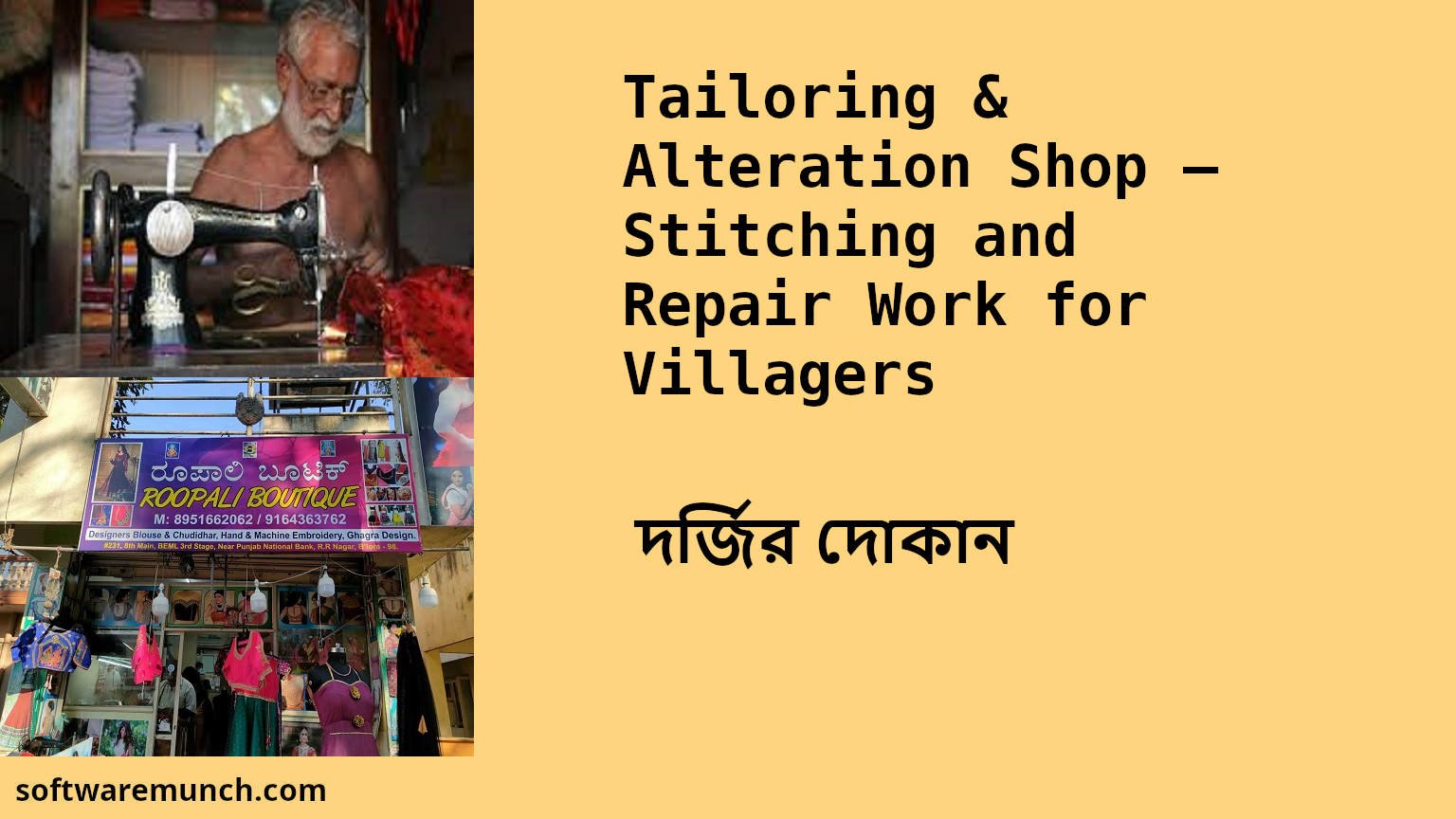In every village and small town, people wear clothes every day. Clothes get torn, sometimes they need to be made smaller or bigger, sometimes a woman needs a blouse stitched for her saree, and schoolchildren need uniforms. For all this, a tailoring and alteration shop is always useful. It is not only a business, but also a service to the community.
Learning the Work
Tailoring is a skill that anyone can learn with practice. Many women and men in villages learn from family members. But for serious business, proper training helps.
In Cities towns like Guwahati Silchar and Kolkata, there are tailoring and stitching courses run by private institutes and sometimes by government skill centers. These courses teach us how to cut cloth properly, how to use a sewing machine, how to take measurements and how to finish clothes neatly.
For those who cannot go for formal training, working as a helper under an experienced tailor in a bazaar is also a good way to start. In one year of practice a person can learn to stitch blouses, petticoats, salwar suits and even men’s pants and shirts.
Investment Needed
The best part about tailoring is that it does not need very big money to start. Main things are:
- A sewing machine – around Rs8000 to Rs15000 depending on model.
- Scissors, measuring tape, chalk, needles, and threads around Rs2000.
- A small table and chair for cutting cloth – Rs2000 to Rs3000.
- Iron box for finishing the clothes – Rs1000 to Rs2000.
If you rent a small shop in the village bazaar, you will need rent money too. Total cost can be Rs20000 to Rs40000 in the beginning.
Types of Services
A tailoring and alteration shop can earn money in many ways:
- Stitching new clothes – blouses, petticoats, salwar suits, kids’ dresses, shirts, pants.
- School uniforms – a big demand in every village and town.
- Alteration work – repairing torn clothes, adjusting the size changing zippers, adding buttons etc.
- Seasonal dresses – warm clothes in the winter, festive clothes during Durga Puja, Eid or Diwali.
Even if customers do not bring new stitching work every day, alteration work will keep coming regularly.
Getting Customers
In rural areas, word of mouth spreads fast. If you stitch one blouse nicely, the woman will tell five others, and slowly you will have many customers. Keeping delivery on time is very important. If you promise clothes for Durga Puja and cannot deliver, customers will lose trust.
Advertising can be simple – put a signboard outside the shop and also spread the word in nearby villages. In towns, some tailors also keep visiting cards to give to new customers.
Struggles in Starting
Like any business, tailoring also has some struggles. At first, customers may not trust a new tailor. Some clothes may get spoiled if cutting is wrong, so practice and training are very important. In festive season, too much work comes at once, and it becomes stressful to finish on time.
Also, buying good cloth-cutting scissors and strong sewing machines is important. Cheap machines break down often and waste time.
Example from Rural Assam
Take the example of Mumtaz Begum from Patharkadi. She learned stitching by working in a small tailoring shop in Hailakandi town , which is not far away from her village, for one year. After that she bought a sewing machine with her savings and opened a small tailoring shop in her own house. In the beginning, she only got blouse stitching orders. Slowly she started making school uniforms for local children. Now, during Puja and Eid season, she gets so many orders that she hires another helper woman to finish on time. Her tailoring shop now supports her family.
Growth in Future
A small tailoring shop can grow big if handled properly. Later, you can add readymade clothes for sale, or you can start training other women and girls in your area. Government schemes like Skill India and PMKVY sometimes provide training and certificates, which help in growing trust.
You can also connect with local shops that sell cloth, so they send their customers directly to you for stitching.
In short, a Tailoring & Alteration Shop is a low investment, steady income business in rural India. With patience, practice, and neat finishing, any woman or man can build a good name in the village and earn a respectful living.
